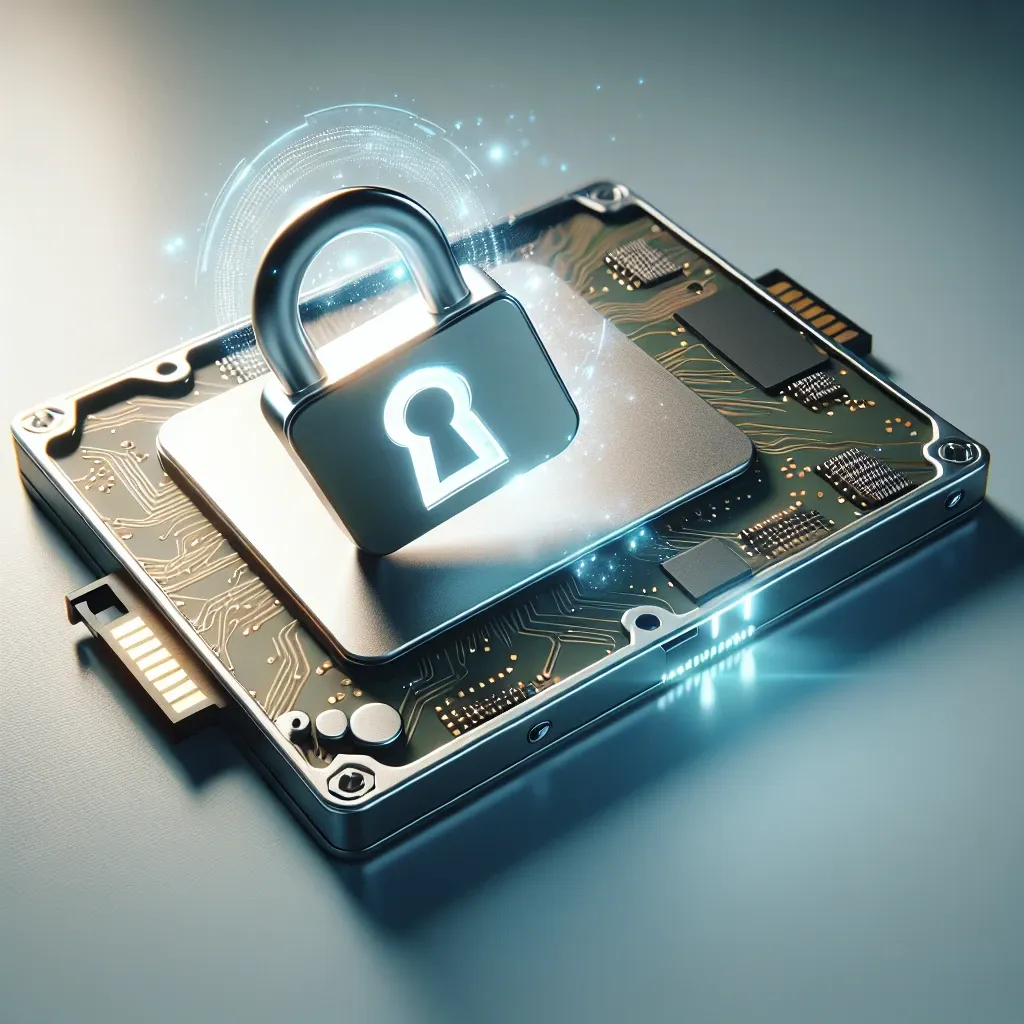
What advantages do SSDs with hardware-level encryption offer?
The advent of Solid-State Drives (SSDs) has revolutionized data storage, offering unparalleled speed and efficiency over traditional Hard Disk Drives (HDDs). However, with the increasing emphasis on data security, the integration of hardware-level encryption in SSDs is a game-changer. Here, we delve into the numerous advantages that SSDs with hardware-level encryption offer.
Enhanced Security
One of the primary benefits of SSDs with hardware-level encryption is the enhanced security they provide. Unlike software-based encryption, which relies on the system’s CPU, hardware-level encryption uses a dedicated processor within the SSD. This means encryption and decryption processes are isolated from the main system and are thus more secure.
| Feature | Hardware-Level Encryption | Software-Based Encryption |
|---|---|---|
| Security | High (dedicated processor) | Moderate (system CPU) |
| Performance | Minimal impact on system | May reduce system performance |
| Ease of Use | User-friendly (built-in) | Requires software installation |
Protection Against Unauthorized Access
SSDs with hardware-level encryption can effectively prevent unauthorized access to sensitive data. Even if the drive is removed from the system, the data remains encrypted and unreadable without the correct decryption key.
Compliance with Regulatory Standards
With stringent data privacy laws and regulations such as GDPR and HIPAA, using encrypted SSDs can help businesses stay compliant. These drives often come with certification that ensures they meet specific security standards.
Improved Performance
Another significant advantage of hardware-level encryption on SSDs is improved performance. Since the encryption tasks are offloaded to a dedicated processor, the main CPU is free to handle other tasks, leading to better overall system performance.
- Faster Data Access
- Speedy Boot Times
- Efficient File Transfers
The dedicated encryption chip ensures that data is encrypted and decrypted almost instantaneously, providing a seamless user experience without noticeable slowdowns.
Reduced CPU Overhead
Software-based encryption solutions can impose a significant load on the CPU, resulting in decreased system performance. However, with hardware-level encryption, this overhead is virtually eliminated, allowing the CPU to manage other critical tasks efficiently.
Data Integrity and Reliability
SSDs with hardware-level encryption are designed to ensure the integrity and reliability of the stored data. This is crucial for applications that require consistent and error-free data access.
Automatic Encryption and Decryption
The encryption and decryption processes are automatic and transparent to the user, reducing the risk of human error. This also means there’s no need to worry about manual encryption procedures or the potential mistakes that can arise from them.
Enhanced Data Protection Features
These drives often come with additional data protection features such as:
- Self-Encrypting Drive (SED) capabilities
- Instant Secure Erase
- Built-in backup and recovery options
These features further reinforce data integrity by ensuring that data can be quickly and securely erased, backed up, or recovered in case of any failure.
Cost-Effectiveness
While SSDs with hardware-level encryption may initially appear to be more expensive, their long-term cost-effectiveness outweighs the initial investment. Here’s how:
Lower Total Cost of Ownership (TCO)
Organizations often find that hardware-encrypted SSDs reduce the total cost of ownership thanks to reduced CPU overhead, better performance, and lower risks of data breaches.
Reduced Security Management Costs
The security features built into these SSDs simplify data protection, which can reduce the need for additional software, maintenance, and IT resources devoted to managing security protocols.
Scalability and Flexibility
Hardware-level encryption on SSDs provides scalability and flexibility, essential for expanding storage needs and various use cases.
Compatibility Across Systems
These SSDs are generally compatible with numerous operating systems and devices, allowing organizations to integrate them seamlessly into existing infrastructures.
Future-Proofing
Enterprise solutions need to be forward-looking. SSDs with hardware encryption offer future-proofing capabilities, ensuring long-term viability as data protection standards and storage needs evolve.
Environment and Longevity
SSDs are already known for their reliability and longevity compared to HDDs. When coupled with hardware-level encryption, they offer additional environmental benefits.
Energy Efficiency
SSDs consume less power than HDDs, leading to lower energy costs and a smaller carbon footprint. Hardware-level encryption further reduces the need for intensive CPU processing, making these drives even more energy-efficient.
Durability
The lack of moving parts in SSDs means fewer mechanical failures and longer device lifespans. Hardware-encryption mechanisms built into the drive ensure that the security features themselves are also durable and less prone to wear over time.
Conclusion
In conclusion, SSDs with hardware-level encryption offer a robust array of advantages, including enhanced security, improved performance, and better data integrity. The overall cost-effectiveness, combined with their scalability and environmental benefits, makes them a worthy investment for both individuals and organizations aiming to safeguard their data effectively.
